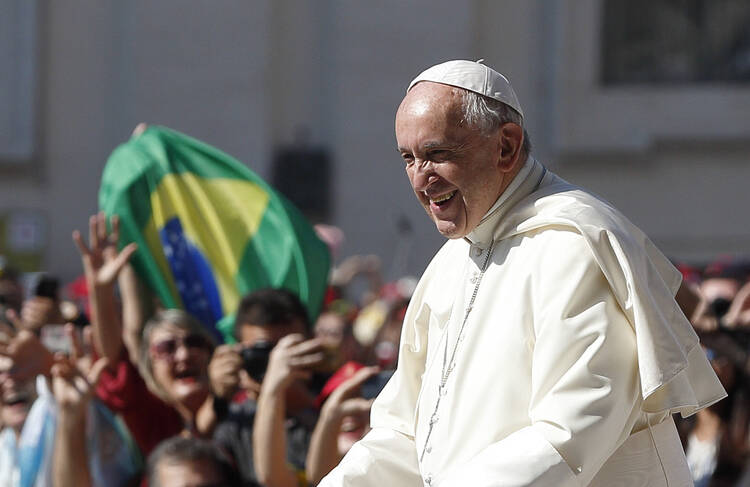After broadening the scope of and issuing new statutes for the Pontifical Academy of Life, Pope Francis appointed new members to the advisory body and included scientists, professors and experts in medicine and ethics from both religious and secular backgrounds.
Seven of the members come from the United States and Canada, including Dr. Kathleen M. Foley, a neurologist at New York's Memorial Sloan Kettering Cancer Center, and Dr. William F. Sullivan, a Toronto family physician and ethicist, who serves as president of the International Association of Catholic Bioethicists in Canada.
In a statement released following the Vatican's announcement June 13, Archbishop Vincenzo Paglia, president of the academy, said the appointments of clergy, scientists and medical experts, both religious and secular, will offer the church and the world a "deep and wise vision in the service of human life, especially life that is weakest and most defenseless."
"Among them are a number of non-Catholics, either belonging to other religions or nonbelievers, a sign that the protection and promotion of human life knows no divisions and can be assured only through common endeavor," Archbishop Paglia said.
The appointments included Rabbi Fernando Szlajen, an Argentine rabbi with an extensive background in bioethics, and the Rev. Nigel Biggar, an Anglican priest who teaches pastoral and moral theology at Oxford University.
Archbishop Anthony Fisher of Sydney, a professor of bioethics and moral theology, and Dutch Cardinal Willem Eijk of Utrecht, a former medical doctor who worked at the Amsterdam university hospital before he became a priest, were also named members of the pontifical academy by Pope Francis.
Founded in 1994 by St. John Paul II, the Pontifical Academy for Life is charged with defending and promoting "the value of human life and the dignity of the person."
In November 2016, Pope Francis issued new statutes for the pontifical academy to widen the scope of its activity and research on life issues.
The new statutes added that the pontifical academy's defense of life must include "the care of the dignity of the human person at different stages of life," as well as "the promotion of a quality of human life that integrates its material and spiritual value with a view to an authentic 'human ecology' that helps recover the original balance of creation between the human person and the entire universe."
The new members named by Pope Francis hail from 27 countries, including Italy, Spain, Japan, Tunisia, Israel and Burkina Faso.
The nominations include 13 members who served on the academy before its statutes and membership were renewed.
Five past leaders of the Pontifical Academy for Life were named honorary members, including Cardinal Carlo Caffarra, retired archbishop of Bologna, Italy, and Birthe Lejeune, vice president of the foundation honoring her late husband, Jerome Lejeune, the first president of the academy.
Archbishop Paglia said the honorary members "represent the history of the academy and a passion for human life for which we must all be grateful."
It is thanks to the "earlier work of so many illustrious men and women that today, with the appointment of new academicians, our institution continues its service to life with renewed energy," he said.
In addition to Foley and Sullivan, the members from the U.S. and Canada are: Carl Anderson, supreme knight of the Knights of Columbus; John Haas, president, National Catholic Bioethics Center, Philadelphia; Dr. Daniel Sulmasy, bioethics professor at Georgetown University; John Keown, professor of Christian ethics at Georgetown University; and Bishop Noel Simard of Valleyfield, Quebec, spokesman for the Canadian bishops' conference on bioethical issues related to euthanasia.
Members of the Pontifical Academy for Life are nominated for five-year terms, which can be renewed. Membership ceases once an academician turns 80.










